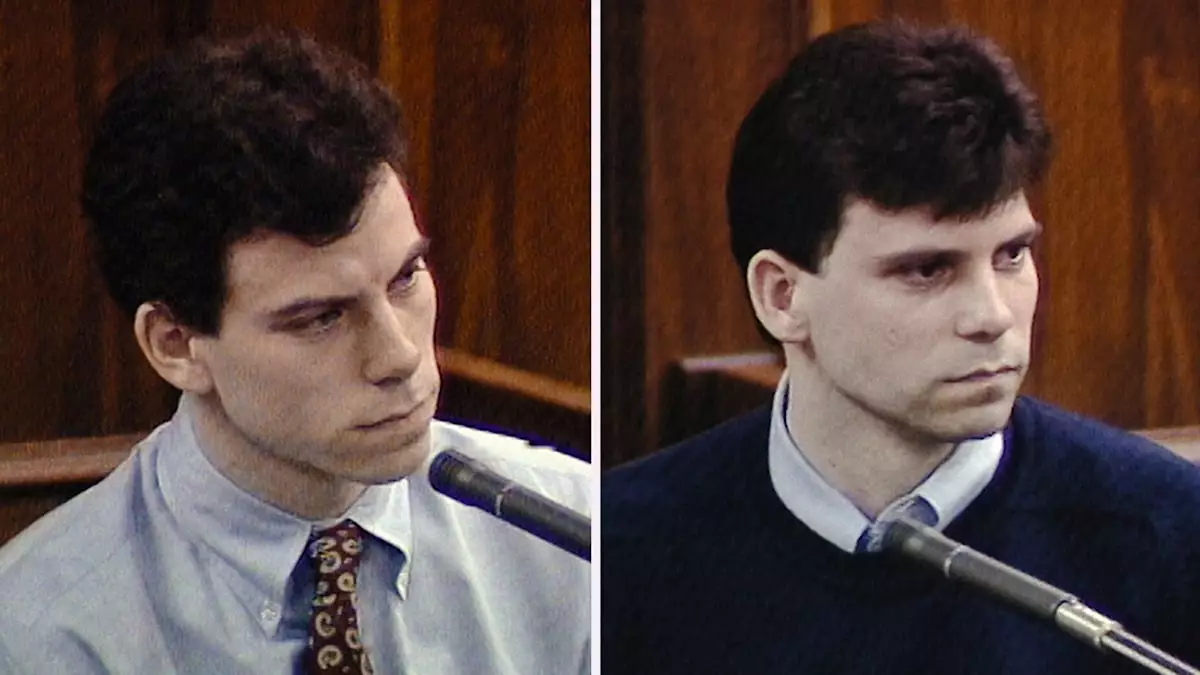The case of Lyle and Erik Menendez, who have been incarcerated since the early 1990s for the murder of their parents, has recently gained renewed scrutiny and sympathy, especially in light of new media portrayals. It has been 35 years since the tragic events transpired, and the ongoing fight for the brothers’ freedom encapsulates not just questions of legal evidence but also societal perspectives on trauma and mental health. In a poignant gathering that took place on October 16 in Los Angeles, nearly 20 members of the Menendez family rallied to advocate for the brothers’ release. This unprecedented press conference featured emotional appeals from both family members and legal representatives, igniting a broader conversation about the implications of their case and the evolution of public perception surrounding it.
The recent Netflix series and documentary have cast a new light on the Menendez brothers’ situation, effectively reshaping narratives that have long characterized them as cold-blooded killers. The media plays a crucial role in influencing societal attitudes, and in this case, it has contributed to a more nuanced understanding of the complexities that surround Lyle and Erik’s actions. The portrayal of their childhood experiences, which they allege included severe abuse, brings to the forefront essential discussions around trauma, post-traumatic stress disorder (PTSD), and how these factors can impact a person’s capacity to respond to life-threatening situations.
It is pivotal to recognize that public discourse has begun acknowledging the psychological dimensions of criminal behavior, which has led to greater empathy for individuals who have suffered in silence. Ana María Beralt, a family member who spoke out not only on her own behalf but also for those unable to attend, highlighted this shift by emphasizing the need for society to understand the brothers as victims of their circumstances: “They would be mocked, they would be called cold-blooded killers,” she stated, indicating the real and lasting effects of societal indifference toward their story.
Accompanying the family’s emotional pleas were substantial legal arguments brought forward by attorney Mark Geragos. At the heart of the matter lies a habeas corpus claim—a legal request for a court to examine the lawfulness of the brothers’ imprisonment. Geragos presented two new pieces of evidence which he argues warrant a re-evaluation of their case. Considering the evolving landscape of legal standards surrounding trauma, abuse, and their implications on individual behavior, the demand for a resentencing is gaining traction. The amalgamation of legal reasoning combined with emotional narratives creates a compelling argument that resonates strongly with public sentiment.
The brothers, despite their harrowing past and the weight of their sentences, have made efforts toward self-improvement while incarcerated. They have engaged in various programs aimed at aiding other inmates, showcasing their potential for rehabilitation rather than serving as mere examples of punishment. This raises the question of whether their continued imprisonment serves any constructive purpose.
A Unified Family and a Hopeful Future
The sentiment expressed in the press conference was unmistakable: unity. Family members from both sides—parents of the victims and supporters of the brothers—came together, signaling a collective recognition that the trauma extends beyond the prison walls and into the larger family structure. Terry Beralt, José’s sister, offered a heartfelt statement emphasizing her unwavering love for Lyle and Erik. Through her words, the deep ties of family loyalty emerged, underscoring the fact that the brothers represent more than just their crimes; they symbolize a family’s struggle with unresolved grief and the desire for redemption.
The call for resentencing the Menendez brothers is more than just a legal matter; it is a potential turning point in how society understands complex cases of familial violence and psychological trauma. As more individuals rally to support Lyle and Erik, there is hope that justice can evolve to reflect not only the actions taken but also the life experiences that lead to those actions. With renewed voices lifting the call for understanding, the tragic events of 1989 may finally open a door to healing for a family long marked by tragedy.

